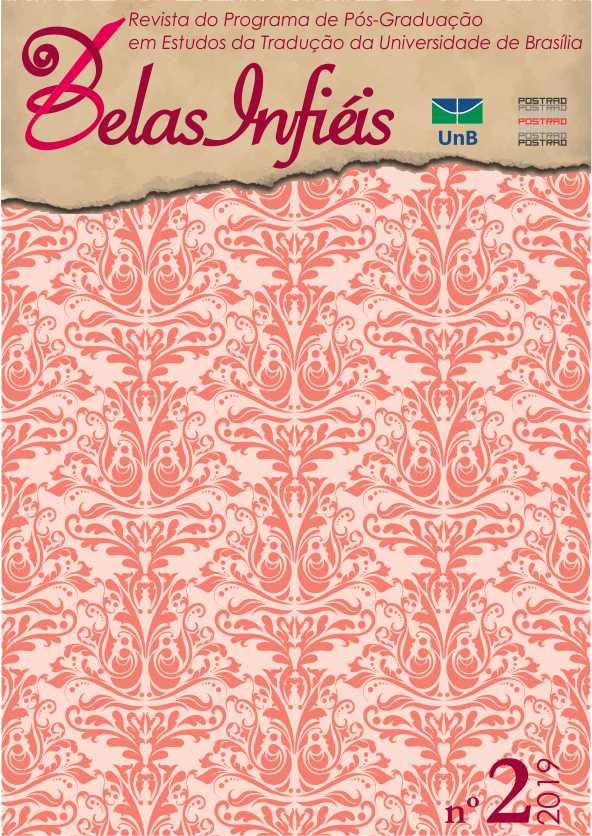“Povos quase da mesma língua”: não-/tradução, modernização, e as relações Brasil-Argentina, 1865-1900
DOI :
https://doi.org/10.26512/belasinfieis.v8.n2.2019.24385Mots-clés :
relações Brasil-ArgentinaRésumé
"Me siento feliz por no poder hablaros en español, porque doy así prueba de que considero tan unidas, tan hermanas nuestras nacionalidades, tan vinculado el pueblo brasileño al generoso pueblo argentino, como hermanos son nuestros idiomas, que se comprenden, que se confunden, que tienen el mismo origen y la misma suavidad.” O congressista brasileiro Serzedelo Correia proferiu estas palavras no começo de seu discurso ao Congresso argentino em 29 de outubro de 1900, como parte das festividades que envolviam a visita do presidente brasileiro Campos Sales a Buenos Aires, retribuindo a visita de Julio Roca, seu homólogo argentino, ao Rio de Janeiro no ano anterior. “Sí! Si el idioma es uno de los elementos que más electrizan a un pueblo y una nacionalidad en la unidad de sus ideales, de sus ideas, en la conformidad de sus costumbres, en la convergencia, de sus sentimientos, en la identidad de sus dolores, de sus alegrías,” continuou a desenvolver sua ideologia da linguagem, então “los idiomas que nosotros hablamos están para decirnos que nuestros destinos se confunden como se confunden las aguas del Plata y del Amazonas con el Océano, las cuales, en una larga extensión, afirman su individualidad, pero habiendo momentos en que no se sabe dónde terminan los ríos y dónde comienza el mar.”[i]
[i] VARELA, Luis Vicente. El Brasil y la Argentina: confraternidad sud-americana; obra descriptiva, ilustrada con fotograbados de las más importantes festividades; Pub. por la Intendencia municipal de la capital de la República Argentina. Buenos Aires: Impr. de J. Peuser, 1901, p. 359-360.
Téléchargements
Téléchargements
Publié-e
Comment citer
Numéro
Rubrique
Licence
Copyright Statement
Given the public access to this journal, the texts are free to use but requires the recognition of the original authorship and initial publication in this journal to be properly stated.
The journal allows the use of works published for non-commercial purposes, including the right to submit the work to publicly accessible databases. Published contributions are the sole and exclusive responsibility of the author(s).
- When submitting papers to be evaluated by the Belas Infiéis journal, the author(s):
- Declare that the contents of the contributions are original and of their original creation, being entirely responsible for their content if there is an objection by third parties.
- Claim to be aware that they should not commit academic plagiarism.
- Declare that the manuscript has not been published, completely or partially, in Portuguese or another language. If it is a translation it should be submitted to the Translated Articles section.
- Declare that the manuscript is not being evaluated by other journals.
- Declare that the manuscript was not submitted to another journal simultaneously.
- Commit(s) to inform the journal of any kind of error or inaccuracy in their contribution (published, in evaluation or in editing) and to collaborate with the editors to make due corrections of the article (when in evaluation or editing) or erratum/retraction (after publication).
- Declare that there is no conflict of interest regarding the published work.
- Authorize its release if it is accepted for publication without any kind of monetary compensation.
- Agree to assign non-exclusive rights to publication to the magazine, remaining free to make their contribution available in other media as long as the publication of the first version in Belas Infiéis magazine is mentioned. They also authorize Belas Infiéis to assign their texts for reproduction in content indexers, virtual libraries and similar platforms.
- Maintain copyright and grant the journal the right of first publication, the work being licensed under theCreative Commons Attribution License.
- Is/Are allowed and encouraged to publish and distribute their work online after the editorial process, which may increase the impact and citation of the published work.
- Authorize the editorial team to make textual adjustments and to adapt the article to the publication rules, when necessary.



















